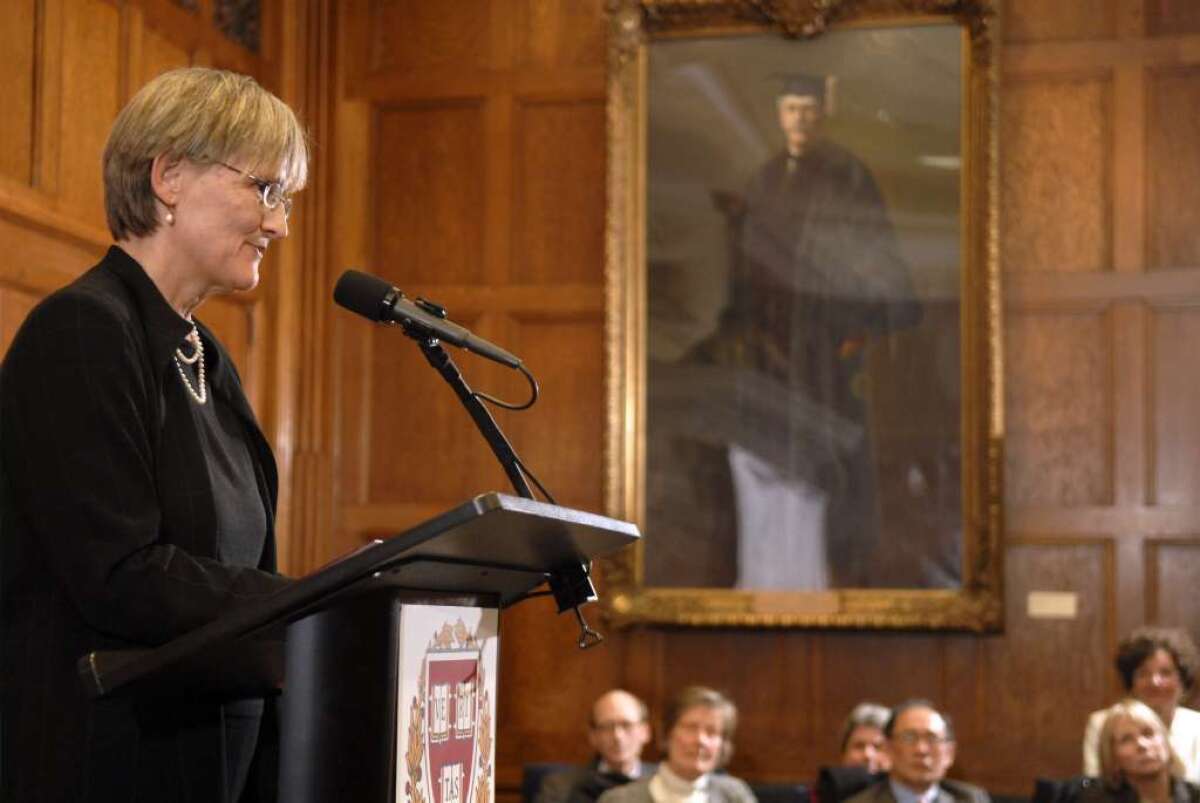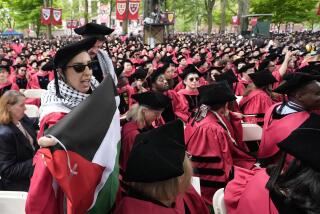Opinion: The devil goes up to Harvard, and Catholics complain

- Share via
Should Harvard University have tried to stop a campus group from celebrating (or “reenacting”) a satanic “black Mass” scheduled for Monday evening in the basement of the university’s Memorial Hall?
I don’t think so, but not because I accept the assurance of the sponsor — the Harvard Extension Cultural Studies Club — that the rite/stunt is an educational event and not an insult to Catholicism.
As Harvard President Drew Faust (!) pointed out: “The ‘black Mass’ had its historical origins as a means of denigrating the Catholic Church; it mocks a deeply sacred event in Catholicism, and is highly offensive to many in the church and beyond.”
That will be true even if the ceremony uses ordinary bread in a parody of the Eucharist rather than a wafer consecrated by a priest, as in the “classic” black Mass. And it will be true even if the Satanic Temple of New York, a participant in the event, doesn’t literally worship the devil. (According to CNN, the Temple “does not believe in a real devil but advocates for religious tolerance and pluralism.”)
Yet even as Faust condemned the ceremony — and promised to show solidarity with Harvard’s Catholics by attending a church service this evening — she indicated that she wouldn’t try to prevent the black Mass.
“It is deeply regrettable that the organizers of this event, well aware of the offense they are causing so many others, have chosen to proceed with a form of expression that is so flagrantly disrespectful and inflammatory,” Faust said. “Nevertheless, consistent with the university’s commitment to free expression, including expression that may deeply offend us, the decision to proceed is and will remain theirs.”
Faust also invoked the secular patron saint of free speech, Supreme Court Justice Oliver Wendell Holmes Jr., who insisted on protection of the “thought that we hate.”
I doubt that Holmes was thinking of Satan worship, real or simulated, when he wrote that in 1929. Still, “original intent” aside, the principle is the same.
It’s understandable that the Archdiocese of Boston would express “strong opposition” to the ceremony. For one thing, the church worries that even a faux black Mass might be a devil’s playground (a concern Pope Francis no doubt would share). But as a university dedicated to free expression, Harvard has a different obligation.
All things considered, Harvard’s president has arrived at an appropriate solution: allow the “abhorrent” black Mass to go forward while sharing a pew and a sense of outrage with the Catholics who find it sacrilegious. Not a bad Faustian bargain.
More to Read
A cure for the common opinion
Get thought-provoking perspectives with our weekly newsletter.
You may occasionally receive promotional content from the Los Angeles Times.











